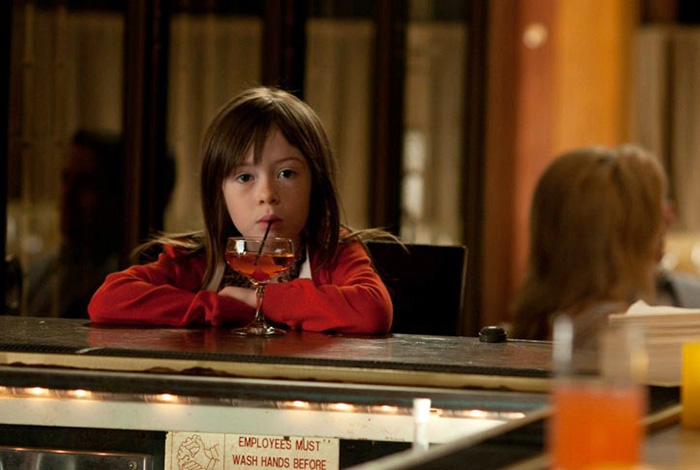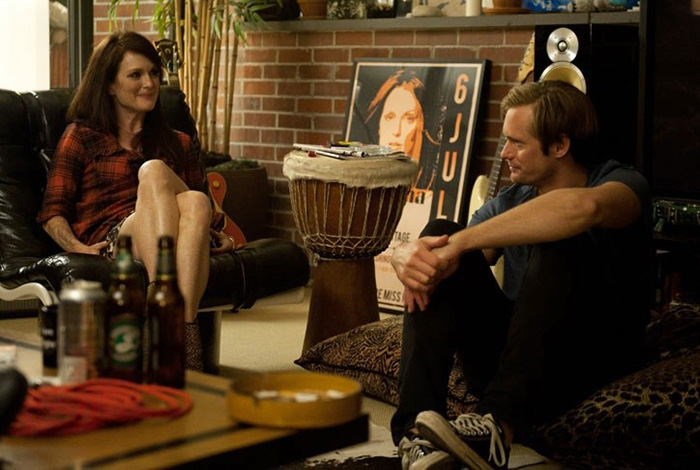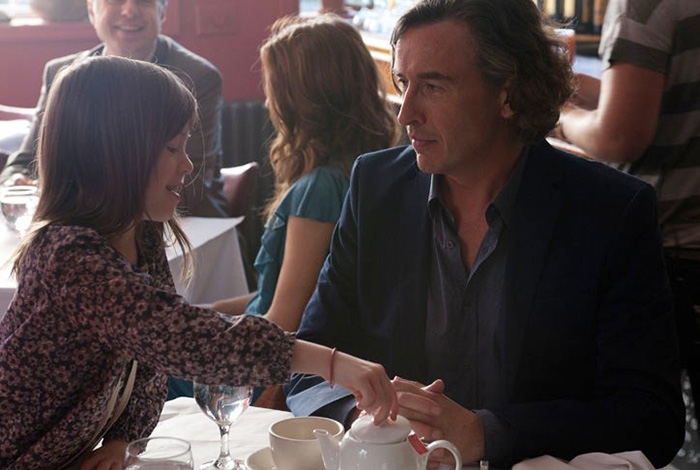Stories like What Maisie Knew are tough pills to swallow because of their authentic depiction of human selfishness. It’s easy to label the subject matter overwrought and hyperbolic due to the actions of its adults until we realize how prevalent such attitudes are in today’s society. With the safety of the titular grade-schooler’s world crumbling around her, we witness those morally and ethically responsible for her not being so while those who shouldn’t be burdened are. Amidst an ugly divorce between two monsters blinded by ego from understanding how important the concept of humility is when raising a child, Carroll Cartwright and Nancy Doyne’s script takes its audience through the ringer in large part because Maisie is too young to fully experience the pain. There really should be a test one needs to take in order to become a parent.

Updated from Henry James’ novel of the same name from 1897, it’s amazing to see how little our society has learned over a century of evolution. As it was then and is now, money appears to be the root of this evil transforming innocent souls into damaged kids fated to grow up and continue the vicious cycle of absentee parenting and upside-down priorities. When wealth and lust are no longer enough to sustain a relationship, some couples find themselves getting pregnant to fill the expanding void and force their union into strengthening its bond. Sadly, the majority of those resorting to such lengths are barely mature enough to take care of themselves let alone a helpless baby, its addition only driving the wedge deeper until their supposed savior becomes their weapon of destruction.
So it’s no surprise directors Scott McGehee and David Siegel (of the underrated The Deep End) introduce us to Maisie’s (Onata Aprile) home life through a dance all too familiar for a large portion of America. The doorbell rings to signify the pizza guy as aging rockstar Susanna (Julianne Moore) and art dealer Beale (Steve Coogan) engage in a pissing contest of raised voices and profanity-laced insults. Unfazed by a scene she’s quickly becoming immune towards, Maisie stops attempting to gain their attention and instead joyously bounds down the stairs to meet the bringer of food at the door with nanny Margo (Joanna Vanderham). Volatile and schizophrenic, these tirades have finally escalated to their crescendo as Beale leaves for the night to be replaced by a locksmith with screwdriver and deadbolt.

A clichéd series of events on paper, they’re made captivating when placed in the background of a little girl’s quest to have a childhood. Maisie doesn’t know what that evening represents—it was merely par for the course inside her underdeveloped mind. She doesn’t understand her mother’s heated phone conversations after spilling the beans that her nanny now lives with her father, nor does she comprehend the concept of marriage once warped to become a tool within her parents’ asinine contest for a provider of the year award neither deserves. No, Maisie simply goes about daily life as a tug-of-war replaces false stability. And rather than show the dramatics in their usual, straightforward way, this story’s portrayal becomes more powerful by its visual narrator’s naivety to the carnage.
Joint-custody becomes nothing more than a notch on internal scorecards once Susanna and Beale’s alternating ten days on and off turn into a chore rather than a blessing. Left by the wayside with new stepparents on either side—themselves pawns in this chess match manipulated into becoming live-in babysitters while mommy and daddy escape into their childless utopias—Maisie finally discovers what real love is. Being so young, however, the sporadic return of Mom and Dad retain optimism and longing for her own dreams of an intact family under two roofs. Unfortunately, the only two people with the same aspirations—Margo and Susanna’s new beau Lincoln (Alexander Skarsgård)—quickly find themselves on the outside looking in.

A well-orchestrated character piece depicting the differences between the love the bond of blood gives and that built from genuine compassion, What Maisie Knew is a bittersweet look at our world’s disintegrating interest in the concept’s importance. Maisie is constantly left alone in the care of complete strangers due to her parents’ assumptions that their shams of new spouses have nothing better to do than act as safety nets to catch her when they fall. While the convenience of these throwaways finding each other in the aftermath of such emotional turmoil despite many real-life examples probably finishing in foster care is an easy plot device leading towards the film’s ultimate end, this sense of hope provides a much needed positivity lacking in its account of otherwise vile creatures.
Moore and Coogan effortlessly portray these villainous parents without any inclination to ever choose Maisie over their careers, each shining at their moment of epiphany in emotion-filled embraces. Despicable in opposite ways—she being brutally explosive while he smugly runs away so as not to be bothered—they give newcomer Aprile perfect examples of people you can’t help but love. Counter them with Skarsgård and Vanderham’s stunning vulnerability and passionate duty wrestling against the steadily rising hatred of their lovers and we receive four impressive performances that never overwhelm by living on the periphery. It’s Aprile’s show and her quiet innocence allows the rest to go for broke so as to render her ultimate reaction towards the circus that much stronger. While most likely ignorant to her circumstance intellectually, Maisie definitely grasps each nuance emotionally.
What Maisie Knew opens in limited NYC release Friday, May 3rd.

